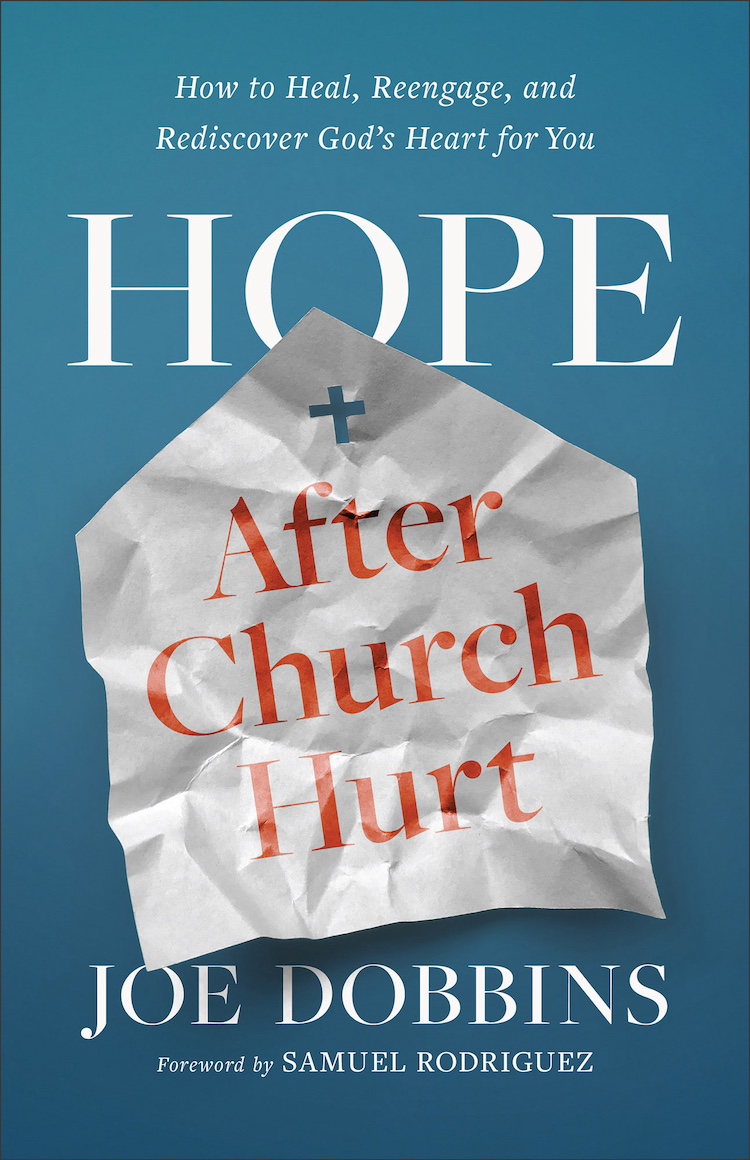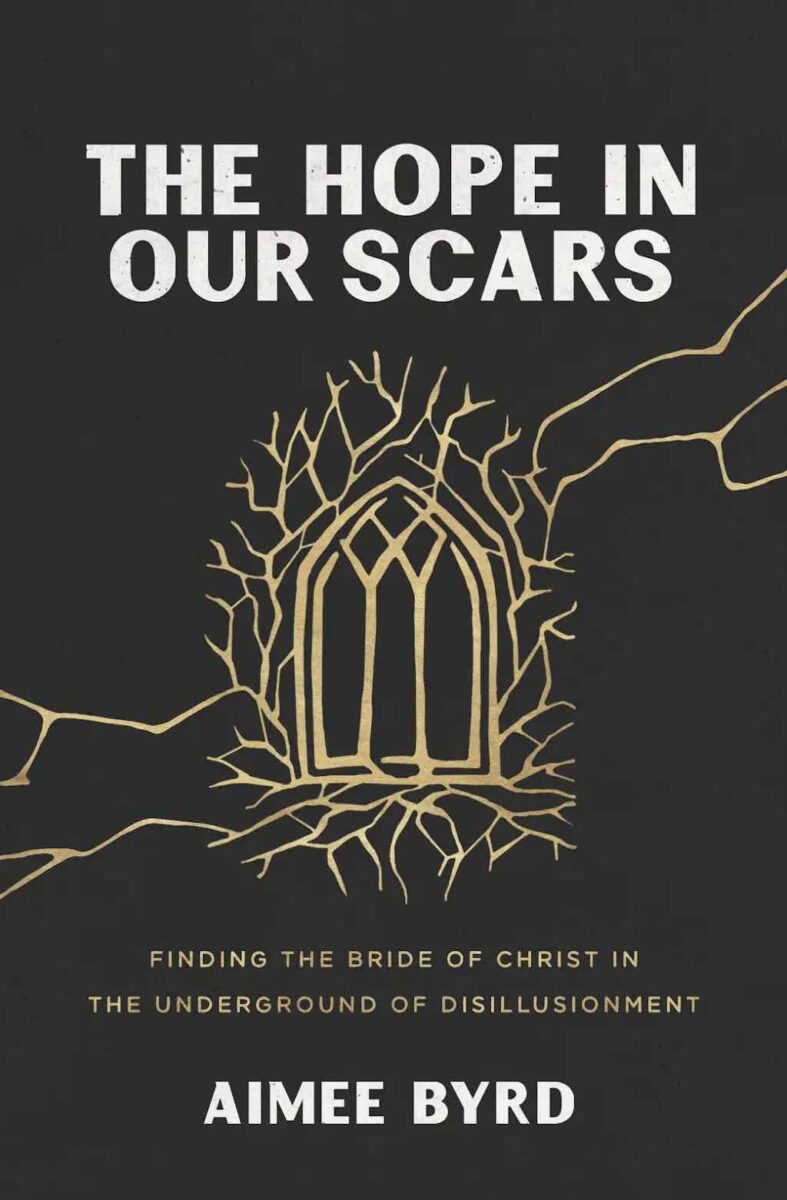The Power of Releasing Hidden Hurts: Joe Dobbins & Aimee Byrd
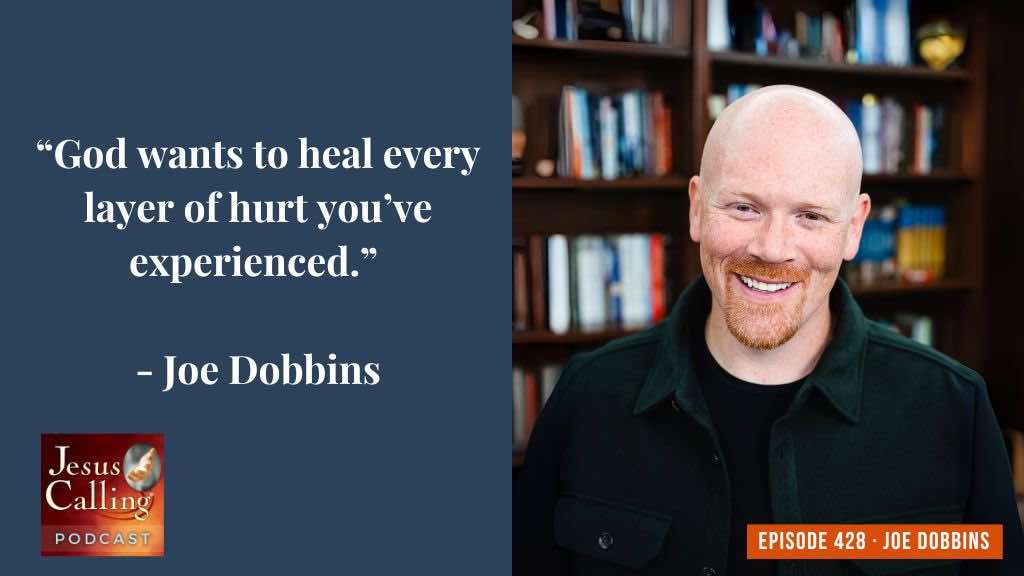
Joe Dobbins: I’ve learned that hurt hides, and hurt is often multifaceted, meaning that you could be struggling both from judgmentalism and rejection, or by unresolved conflict and someone’s wounding words. I think the inner wounds are often compounding in their effect on our lives. And I also believe that God wants to heal every layer of hurt that you’ve experienced.
The Power of Releasing Hidden Hurts: Joe Dobbins & Aimee Byrd – Episode #428
Narrator: Welcome to the Jesus Calling Podcast. This week, we’ll hear from two influential voices in the Christian community, Joe Dobbins and Aimee Byrd.
Joe Dobbins, pastor of Twin Rivers Church in St. Louis, Missouri, and author of Hope After Church Hurt, shares he and his wife’s painful experiences with their church and the healing process that followed. His insights provide a roadmap for those struggling with similar wounds, offering steps toward restoring faith and re-engaging with the church.
Following Joe’s story, our next guest is speaker, blogger, and podcaster Aimee Byrd. Aimee opens up about her lifelong journey of searching for belonging in the church, and how she learned through trials and painful hurts that God wants us to ask questions, and even though we might be scarred by those who twist truths to facilitate how they think we should live, we can find our way back to God and what He says about how we were meant to live.
Let’s begin with Joe’s story.
Joe Dobbins: My name is Joe Dobbins. My wife, Kayla, and I have five beautiful children, and we lead Twin Rivers Church in St. Louis, Missouri. And I’m also the author of the book Hope After Church Hurt.
I was raised in a rural town in West Virginia, and I’m the first of three children. We attended a very small church, and my parents were the type of members who attended every single service, so we were in services multiple times a week. And that’s why many of my core memories and most significant relationships surrounded that small church. It proved to be a perfect place for me to explore my faith, and ultimately gave me the greatest gift in the fact that it introduced me to Christ and helped me become one of His followers.
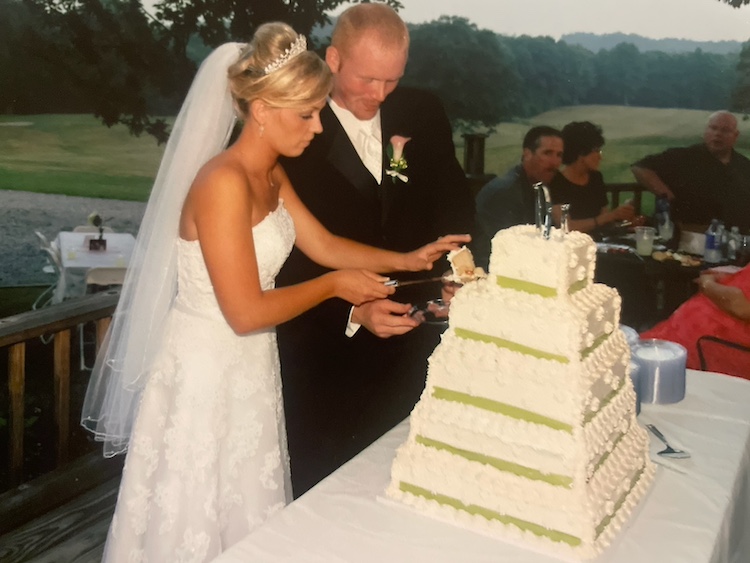
Church was a life-giving experience until my wife and I got engaged. And that’s when we discovered church could hurt. We were in our early twenties, and Kayla’s parents had some concerns about our age and how fast our relationship had progressed. Their initial response to our plan to marry was not what we’d hoped. In fact, they opposed the idea, which launched us all into a very difficult season. And Kayla was particularly torn because she wanted both to honor her parents but also marry me. And in that tension, she sincerely wanted God’s guidance, so she decided to press into her faith. And one Sunday during a service at her church, she found a place to kneel in the front and pray as people were worshiping. Well, typically, when a person took such a step within her church, someone would come alongside them and pray, so it wasn’t surprising when an influential leader approached her. And, of course, she just assumed that this would be an act of compassion, but it turned out to be the opposite. Apparently, this person had heard about her family’s turmoil and decided to kind of help them by fixing it. She chose to lecture Kayla in front of the whole church, accusing her of acting in rebellion towards her parents and pursuing an ungodly relationship with me. And this just broke Kayla’s heart. You know, she was confused because this was someone who was supposed to represent God’s guidance and His love. She was also crushed because in that moment, it felt like she had lost the one place that was supposed to be safe to struggle. And that experience wounded us both very deeply, and it left us with a lot of negative emotions to work through.
The season that followed that painful experience was one where we physically attended church, but we withheld our hearts, and the rejection we felt caused us to lose confidence in leaders. It created a distrust for people, and it did cause us to question our place in the community. And at first, this offense just seemed so reasonable to keep. After all, we had been done wrong. But over time, here’s what I noticed: there was a persistent lack of peace in me. I had a low boiling anger, and my faith personally became stagnant. And it was out of that self-awareness that I was kind of just led on to discover that my pain really had poisoned my own soul. And though I was frustrated with someone else, it was me who was suffering. And the best way I could explain it is really that God is omnipresent, meaning He’s everywhere that we are at all times. But just because you are in His presence doesn’t mean you have entered His presence. To enter God’s presence, meaning to receive Him, your heart has to be open. And pain had caused my heart to close. And though I was in church where God’s Word was being taught and worship was being expressed, I wasn’t in His presence. And without God’s presence, really all it left me with was empty religion.
“The season that followed that painful experience was one where we physically attended church, but we withheld our hearts, and the rejection we felt caused us to lose confidence in leaders. It created a distrust for people, and it did cause us to question our place in the community…God is omnipresent, meaning He’s everywhere that we are at all times. But just because you are in His presence doesn’t mean you have entered His presence. To enter God’s presence, meaning to receive Him, your heart has to be open. And pain had caused my heart to close.” – Joe Dobbins
Three Steps for Healing Church Hurt
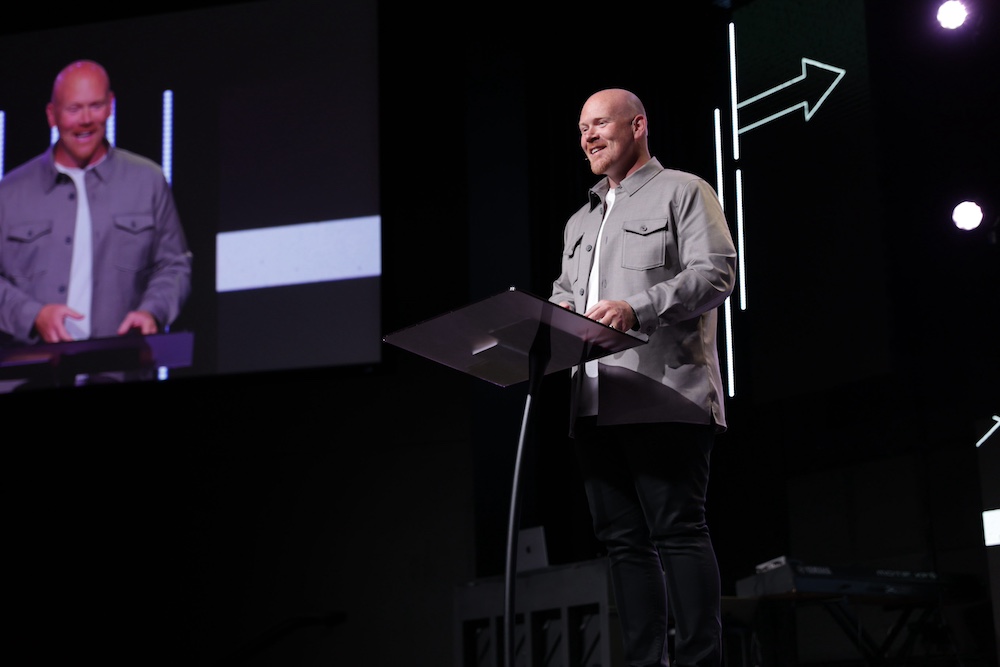
There was a solid year and a half where we were just going through the motions and just living with this pain. And after recognizing what my long-held pain was really costing me, I just went on a journey to learn what it takes to break free from those cycles of pain. And for me, I think there are three steps that are essential no matter what your journey has been.
- Restore God’s Authority Over Your Pain
The first one is you have to restore God’s authority over your pain. Moments like these are so impactful, they usually reset the entire structure of our lives. And in the wake of something as shattering as abuse or rejection or learning someone gossiped about you, it’s not uncommon for our feelings to really become the lord or leader of our lives. The grief is so strong, the anger so acidic, the fear is just so pronounced that emotions begin to rule every decision, attitude, and action. And your emotions are meant to enhance your life, but they’re not meant to lead your life. And when you’re led by your emotions, they usually exhaust you. So the very first thing I learned was that healing begins by knocking your feelings off the throne of your heart and allowing Jesus to retake His proper place. You know, it’s no coincidence that one of Jesus’s divine titles is Prince of Peace. This tells us His ability to bring peace requires His rulership. But here’s the problem: your feelings aren’t going to give up without a fight. They’re going to kick and scream. They’re going to bring up memories. They’re going to bring up lies, even, that say God doesn’t understand, that He’s forgotten you. And so it requires that we keep swatting those down, keep pushing away those false ideas, and we continue to entrust our pain to God. And eventually, we overthrow our feelings.
“Healing begins by knocking your feelings off the throne of your heart and allowing Jesus to retake His proper place.” – Joe Dobbins
- Release that Pain to Christ
The second step is that you then have to just choose to release that pain to Christ. And what helped me do that was the idea that realizing Jesus was the most rejected man to ever live. I mean, the Jews, the Greeks, the Romans all rejected Him. The Pharisees, the Sadducees hated Him. Even in His moment of greatest need, the disciples abandoned Him. And I just say all that to remind us that Jesus understands pain. He experienced criticism at every level and endured false accusations everywhere He went. What that means for me is releasing my praying to Christ means I refuse to go anywhere else for comfort. Not to success, not to substances, not to sex, not to accomplishments, only Jesus. He becomes my comfort.
- Refuse to Carry Unforgiveness
And then I think the last thing that’s required is that you have to refuse to carry unforgiveness. Most people never forgive because they’re waiting to have a feeling of forgiving, but your feelings are never going to mesh with forgiveness. It’s an intentional decision, and it’s really two decisions. It’s first to decide that your offender owes you nothing. They don’t owe you an explanation, an apology, or a repayment. It’s just you releasing that offense and saying, “They don’t have to come make this right.” And then the second decision is that you have to begin to then pray for the person who wronged you. In Luke 6:28, Jesus says that we bless those who curse us, we pray for those who hurt us. Basically, to bless means to want for them what I would want for myself. So I think we have to decide to begin to pray for them what we’d even pray for ourselves. What I’ve learned is forgiveness is never a one-time event. It’s a daily exercise, that every time you remember how they hurt you, you’re going to have to decide to release it and forgive it again. And eventually what happens is that practice causes the decision in your head to move into the feelings in your heart. And if you’ll do it enough, you’ll eventually find the pain you’ve been carrying from rejection is replaced with God’s peace.
“Forgiveness is never a one-time event. It’s a daily exercise, that every time you remember how they hurt you, you’re going to have to decide to release it and forgive it again. And eventually what happens is that practice causes the decision in your head to move into the feelings in your heart. And if you’ll do it enough, you’ll eventually find the pain you’ve been carrying from rejection is replaced with God’s peace.” – Joe Dobbins
Following Jesus and Not His Followers
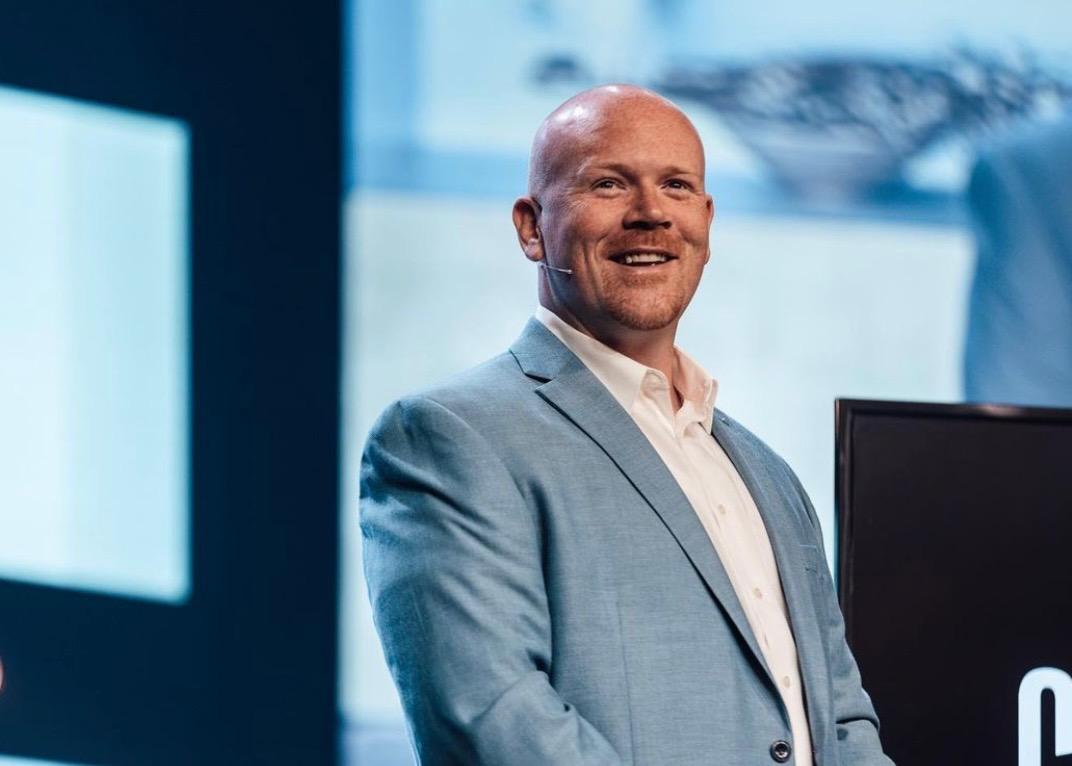
I believe God intended the church to look like His Son. In fact, one of the phrases people used to refer to the church is the body of Christ. So God desires His church to look, act like, and operate like Jesus. I think what’s interesting is, by the way, that’s God’s will for each of our lives. Romans 8:29 says that it is His will that we are fashioned into the image of His Son. Now, the problem is, we’re each on a journey, and pain is the result of when we encounter the part of the person that looks nothing like Jesus. And that’s why it’s essential that we remember this. Jesus said, “Follow me,” not follow my followers. And I believe that a lot of church hurt is wrapped up when our expectations are not met from a person we esteem, or see that they should be further along in their journey. And so over time, one of the things that I think has helped me protect my heart in church hurt is the idea of adopting God’s expectations for people. Psalm 103:13 and 14 says this: that the Lord is like a father to His children, tender and compassionate to those who fear Him. For He knows how weak we are, and He remembers we are only dust. And I love that because it says that God expects from us what He expects from dust. No more, no less. He knows that even at our best, we’re limited, we’re flawed, and inconsistent in the same way that dust blows in the wind.
“Jesus said, ‘Follow me,’ not follow my followers. And I believe that a lot of church hurt is wrapped up when our expectations are not met from a person we esteem, or see that they should be further along in their journey.” – Joe Dobbins
Now let me be clear though, this passage doesn’t mean that we should set a bar so low that actions and attitudes of those around us should go without accountability. It just simply means that we should keep in mind always that people have limitations. And because we know that, we can separate when someone’s actions are wrong, and yet God is still good. That we can separate when a leader falls, but that Jesus remains in charge. And I think it also allows us to predetermine to extend grace to everyone, no matter the position or the action they hold, ultimately, because that’s God’s disposition towards us.
And if there was one thing that I think we could all do to increase our understanding and support each other’s healings and create healthier churches, it would be to become excellent at listening. You know, I think it’s interesting today how Christians are really known more for the points they want to make. But yet Jesus was known for asking questions. In the Gospels, we see Him ask 307 questions. He obviously understood the power of listening, and He knew that asking a question makes a great statement about how we value another person. And so I think the church would do well today to remember listening is loving, because often we too quickly jump to trying to tell people what they need to do before we understand the pain they’ve been through.
“I think it’s interesting today how Christians are really known more for the points they want to make. But yet Jesus was known for asking questions…the church would do well today to remember listening is loving, because often we too quickly jump to trying to tell people what they need to do before we understand the pain they’ve been through.” – Joe Dobbins
Finding Resources for Healing
Strengthening our connection to God through Scripture or resources like Jesus Calling is instrumental in healing, because one of the biggest mistakes people make is trying to heal in their own strength. Healing isn’t natural. It’s supernatural. It’s a divine act of God’s Spirit in our heart. And I think that coming to a daily time with Jesus through scriptures and devotionals is crucial, because it reminds us of two truths that are necessary to heal. The first one is that God understands. You’ve never had a wound in which Jesus didn’t empathize. He uniquely endured physical, emotional, mental, and spiritual hurt, including severe mistreatment from the religious community. The Bible says that He came to His home and His home did not receive Him. It never ceases to amaze me that the most vicious lies and the ultimate rejection of Jesus came not from the Greeks at the Romans or the pagans, it came from those who were considered children of God. And that lets us know for certain God understands what we’re going through when we’re suffering from church hurt.
Additionally, though, daily time with Christ reminds us that God is just. Resentment is our way of keeping record of what that person did, so it won’t be forgotten. When a crime is committed, a detective goes through a tedious process of collecting evidence and filling out a report. Then everything concerning that crime is filed away and kept under guard. And these efforts are to ensure nothing is missed and justice can be served. Well, did you know that God has a similar process? Psalm 56:8 tells us He collects the stories and tears of our lives, and that means there’s a record of what’s been done to you every time you were mistreated, abused, rejected, or experienced some form of prejudice. God made note of it. And so we don’t have to keep our resentment. We can rest in God’s justice that nothing has slipped His watchful eye. And not only can He execute justice, but He can heal us at the exact same time.
I’ll be reading an excerpt of a prayer from Jesus Listens from July 3rd:
Precious Jesus,
Help me to look for You—and find You—in the hard places of my life. When I’m troubled by thoughts of hurtful experiences in my past, I’ll look for You in those painful memories. You know all about them, and You are ready to meet me there. I can invite You into those broken places and collaborate with You in putting the fragments back together in new ways.
When I’m walking through tough times in the present, please remind me to keep clinging to Your hand. Against the dark backdrop of adversity, the Light of Your Presence shines in transcendent radiance. This Light blesses me abundantly. It provides both comfort and guidance—illuminating the way forward step by step. As I seek to walk close to You, please draw me into deeper, richer intimacy with You.
In Your compassionate Name,
Amen
Narrator: To learn more about Joe Dobbins, check out his book, Hope After Church Hurt: How to Heal, Reengage, and Rediscover God’s Heart for You, wherever you buy books.
Stay tuned to Aimee Byrd’s story after a brief message.
Available Now: The Jesus Calling Commemorative Edition
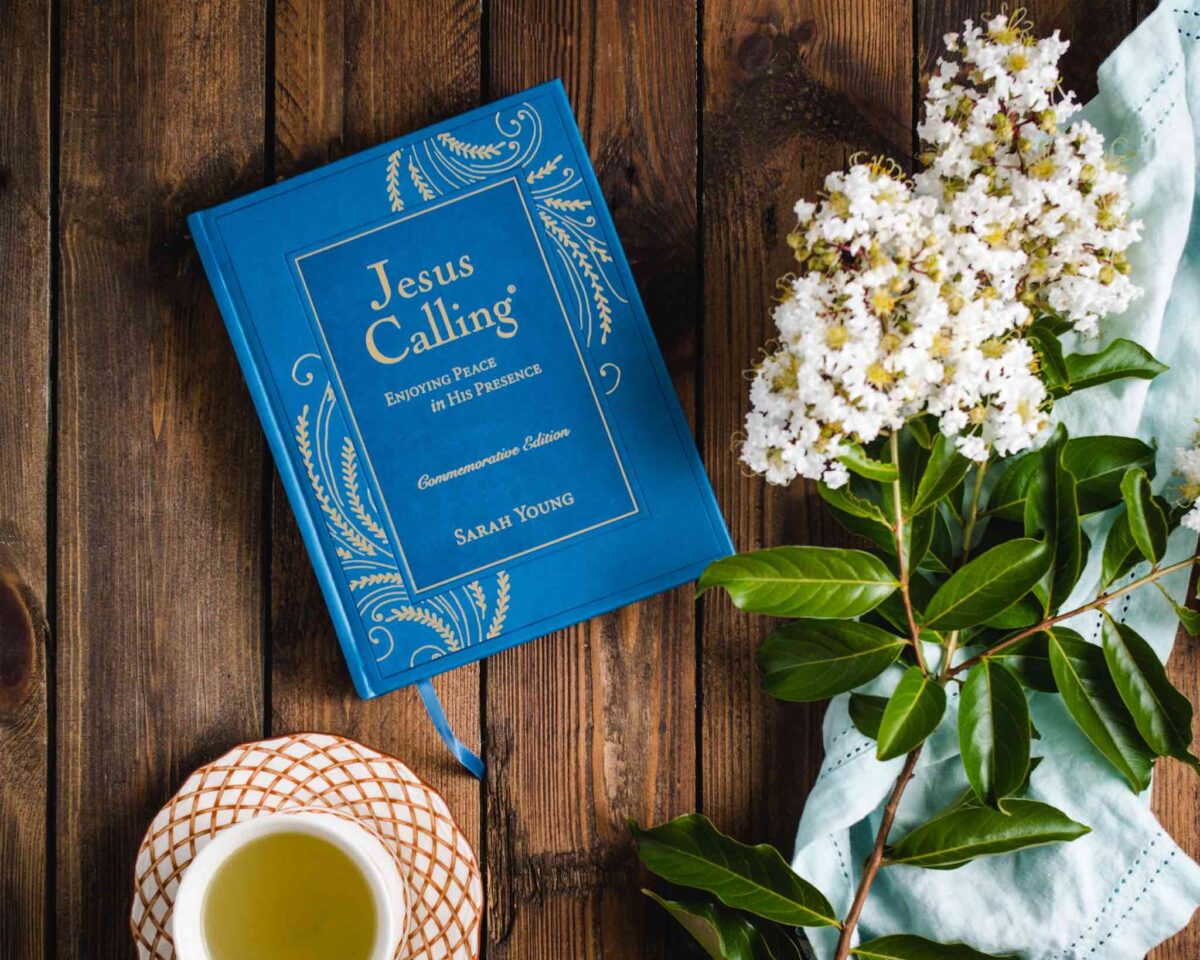
For over twenty years, readers have discovered the joy of spending time in the presence of the Savior with the much-loved daily devotions in Jesus Calling.
Now, in the Jesus Calling commemorative edition, you’ll feel comforted by words of hope and encouragement, and be reassured of Jesus’ unending love through author Sarah Young’s words of gentle guidance that are rooted in Scripture.
In this deluxe edition, you’ll find samples of Sarah’s original handwritten devotionals, twelve new devotions she penned before her passing, letters from Sarah to readers for each month of the year, and a touching tribute from Sarah’s daughter.
Experience a deeper relationship with Jesus as you savor the presence of the One who understands you perfectly and loves you forever. Find the Jesus Calling commemorative edition today at your favorite retailer or get 30% off your purchase at www.faithgateway.com.
Our next guest is speaker, blogger, and podcaster Aimee Byrd. Aimee shares about a time in her life where she was exploring for deeper truths about her place in the church, and how she found meaning in the study of theology. Though what she discovered in her studies was beautiful and profound to her, it was met with scorn and disapproval from people in her church who viewed things differently. Aimee shares how she came through that season, and has since helped others not to fear questions and to learn that no question is too hard for God.
Aimee Byrd: My name is Aimee Byrd. I’m an author, I’m a speaker. I’ve been married for going on twenty-seven years. I have three young adult children. I live in Frederick, Maryland, and I love the outdoors.
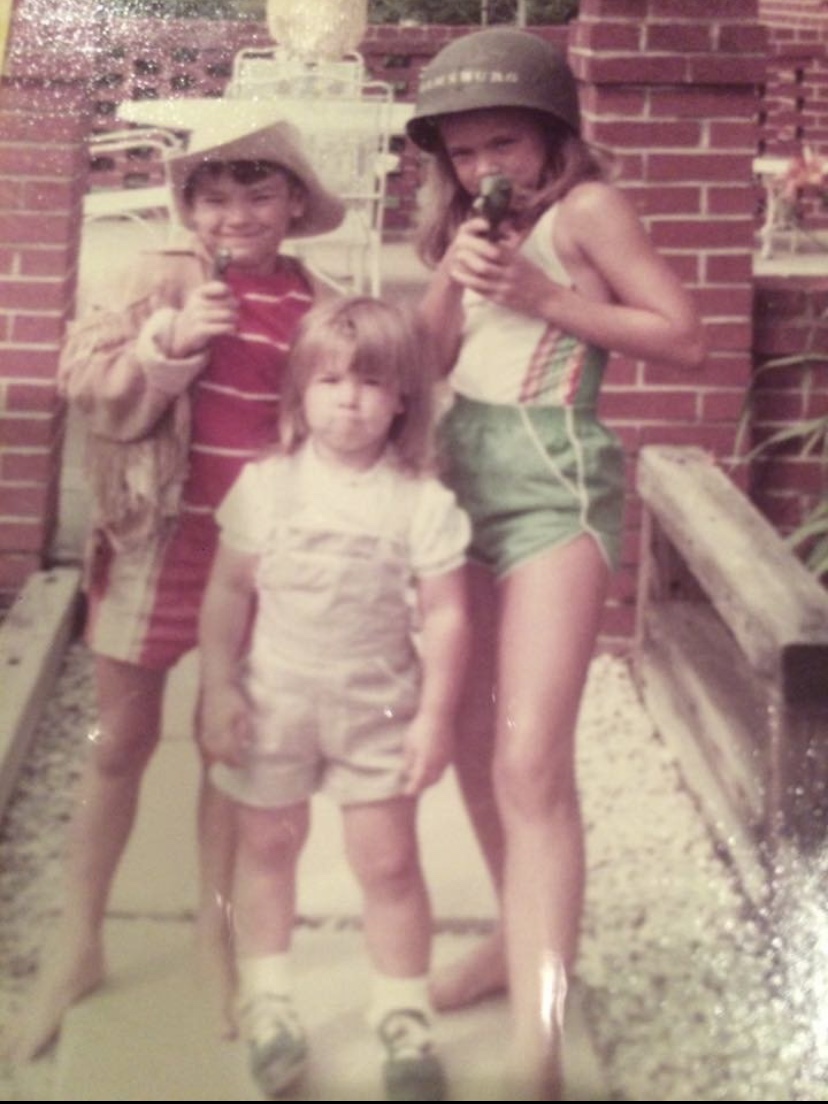
I was raised in church. I had very young parents. They taught me good praying habits, to pray every night before I go to bed. And I really believed I felt God’s presence with me. I felt the love of God in my life.
In our church, I felt like I had an identity as a young, Christian woman growing up there until my parents divorced when I was around fifteen years old, and no one really at the church was there for us. So that was some beginning stages of disillusionment for me, trying to ask like, Well, what’s church supposed to be for us? And what’s God supposed to be for us in this situation? How are leaders supposed to act and care for us?
Coming Back After Church Hurt
I got disillusioned for a couple of years where I just wasn’t going to church. I was rebelling a good bit. And when I went back—I was in college at that time—it was a conviction, almost, of the realness of who God was and how beautiful He is. You know, really wanting to know Him. So that brought me back to church, and I thought, Oh, man, these people are just gonna really love the fact that a college student is coming all by herself to church.
And they were very smiley and happy to see me. And then they gave me a jar of jelly, and sent me along my way. I was expecting to be taken under their wing, to learn, to be discipled. And I found myself having to go to the Christian bookstore, really, to begin more of my path to learning.
When my husband and I got married, I was fresh out of college, and both of us came from divorced homes. So we wanted to do this whole Christian life and marriage thing “right.” There were all these resources on biblical womanhood that I was reading because that’s what I wanted to be, a biblical woman. And I still had this vigor to learn more about God and who He was. And I started learning like, Oh, there’s a word for that. It’s called theology, just the study of who God is. And that fascinated me.
“I still had this vigor to learn more about God and who He was. And I started learning like, Oh, there’s a word for that. It’s called theology, just the study of who God is. And that fascinated me.” – Aimee Byrd
And I thought, for sure, church is the place where you go to learn these things. I found myself lonely as a thinking woman in the church. I wasn’t able to penetrate into those spaces where people were really talking about God, the theology in Scripture, and even just entering into that creative thought life in the church.
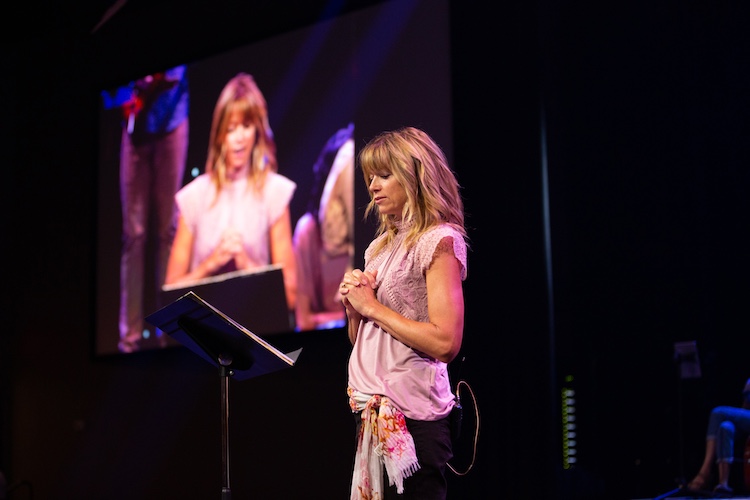
I thought, Well, maybe if I wrote a tool to help other women realize, hey, we’re all theologians, what we know about God matters and affects our everyday living… I got that book published and I had a really good reaction to it. And next thing you know, I’m asked to co-host a podcast with a pastor and a popular church history professor. And then that led to more speaking engagements. These weren’t ambitions that I had originally, and each time I got invited to do things, I was asked to step outside of my comfort zone. But I did it, and I began to love it. And I was traveling all over the place, meeting so many different women in the church, and realizing that there are many like me who are struggling as thinking women in the church who want to be more engaged theologically, who want to get into deeper Bible study, to be able to be invested in the whole heart of the church.
“I was traveling all over the place, meeting so many different women in the church, and realizing that there are many like me who are struggling as thinking women in the church who want to be more engaged theologically, who want to get into deeper Bible study, to be able to be invested in the whole heart of the church.” – Aimee Byrd
Aimee Faces Criticism and Backlash
I wrote this book called Recovering from Biblical Manhood and Womanhood. What I was focusing on was, as a disciple, what does it look like to be a woman and a male disciple in the church? What do disciples do? What’s our great honor and responsibility as brothers and sisters—as Paul calls us over and over and over again. Let’s look at the female voices and the male voices in Scripture. What can we learn from how their voices are used? What’s meaningful about being a woman? What’s meaningful about being a man?
You know, I expected heavy critique. But man, the backlash I got was severe. Christian male leaders who were upset with me in my denomination and some surrounding it formed this group—it was made up of over 1,100 people—where they were speaking on and on and on about me, harassing me. They were calling me Jezebel. They were calling ahead of my speaking engagements, saying, “Beware, guard your families and your churches from this dangerous woman.” And they’re plotting to sabotage my Amazon review page. Making memes of me critiquing my looks, saying if my husband really loved me, he’d shut me up. “Why doesn’t she shut up and go make me a sandwich?” You know, that was a comment. Just all kinds of things.
Now, not all of those people were saying these things. This group existed before they were hating on me. But I became their favorite target. So this was extremely disturbing. I mean, there’s going to be jerks on the internet, but these were pastors and elders, and it was led by some in my own denomination. And I even found out, worst of all, that one of the elders in my church was a member of this group. It felt like a very deep betrayal.
I tried to address this then in my denomination, using the proper church channels that were set up by our government system in the church. I went through a two year process, and the process of addressing it in the church was more dramatic than seeing all that was being said about me, because there was no care involved. I had no voice. And yet the people who did take the pen to narrate my story and stand up there with their authority mocked me. And there was laughing. No one stood up for me who could speak.
Aimee Finds Comfort in Scripture
I thought I belonged in this church family and in this denomination. I had all this security in that we loved our church, we had so many relationships there, we served like crazy in all the ways. It was counterfeit belonging.
And so being disillusioned with that made me stop and say, “Well, what is real? What is true? Is God who we thought He was? Where do we belong and what do we believe?” Even my whole sense of self was kind of rocked because you realize that I trusted these people. What’s going on here with my own discernment?
So that led me to God’s Word, getting more and more precise about who God is and who the church is and who I am. It brought me back to my college days and how I love to read contemplative thinkers. And I wanted to get back more into looking for that and the beauty in God’s Word. And that led me to an interesting book in the Bible, it led me to the Song of Songs. If you want to go anywhere in the Word of God and experience Christ in the most intimate way, go to the Song of Songs. I was able to experience Christ in my pain, in my wounds, and in the Song, you have this woman. She announces her requests before God boldly. She proclaims her insecurities. She tells Him about the dangers that she is against. There are times where she can’t find Him. And in this allegory of Christ’s love for His bride—and in the words between this man and this woman in the Song—she can’t find Him sometimes. And I thought, Man, I feel this way too, you know? But there’s something happening in the Song. You’re not just reading propositional statements, the poetry, the allegory, the metaphors. They do something to you. They stir your own longings and direct your longings. And so that kind of reading in Scripture became very important to me then.
I thought, Wow. I can talk this way to God. And then I would read those words from Christ to me, to my heart, to my soul and mind, where He’s speaking over and over again about her goodness and her beauty, and how He delights in her. And so I really took those words to heart and was comforted by them.
God Can Use Our Disillusionment to Bring Us Back
Maybe this disillusionment is a tool that Christ is using to direct us to Him, to be able to name what is counterfeit. There’s this verse in Scripture where Jesus tells us in John 12:24, “Unless you’re like a grain of wheat and fall to the ground and are alone, you bear no fruit. But if you die, you bear much fruit.” And Malcolm Guite is a poet who wrote a beautiful poem about this. And it’s kind of a prayer, he’s saying, like, “Oh, that I could be like this grain of wheat dying to my soul self.”
And I thought, Yes, that is it. There were so many things I needed to die to myself in this process of disillusionment and healing. But you look to the left and you look to the right and you realize there’s a whole crowded underground of people doing the same thing, and that’s what church should be.
“There were so many things I needed to die to myself in this process of disillusionment and healing. But you look to the left and you look to the right and you realize there’s a whole crowded underground of people doing the same thing, and that’s what church should be.” – Aimee Byrd
God uses our disillusionment as a tool to kind of disrupt us. After going through disillusionment, I’m able to name the places that maybe I didn’t have it right and where maybe the church doesn’t have it right. I began to care more about what’s beautiful and what’s good and what’s true. And that means you’re caring a lot more about love and realizing that I need to trust God more than my own certainties. So I think disillusionment helps us to strip away this whole, you know, dying to the soul self and be re-taught by God and His Word.
God wants us to come with our questions. Christ doesn’t need a curated bride. He wants the real. He wants us to be able to come as we are, and see it because He wants us to walk into beauty. And beauty is really an invitation into goodness. It’s the open door of the kingdom of God.
“God wants us to come with our questions.” – Aimee Byrd
Hope in Our Scars
God uses stories so much in Scripture to teach us. We’re here to tell our stories, to hold one another’s stories. And as we look at our wounds and the scars as they’re healing, they bear testimony to where we’ve been, what we’re going through, where Christ has met us. And then who’s with us? Who’s showing Christ to us in it? How are we seeing Christ in the faces of others?
“We’re here to tell our stories, to hold one another’s stories. And as we look at our wounds and the scars as they’re healing, they bear testimony to where we’ve been, what we’re going through, where Christ has met us.” – Aimee Byrd
Jesus Listens, August 23rd:
Merciful Jesus,
I ask You to smooth out the tangled-up places in my life, including those in my mind and heart. I come to You just as I am—with all my knotty problems and loose ends. Many of my difficulties are complicated by other people’s problems. So it’s hard to sort out how much of the mess is mine and how much is theirs. I want to take responsibility for my mistakes and sins without feeling responsible for the sinful failures of others. Please help me untangle my complex circumstances and find the best way forward.
I need to keep turning toward You—seeking Your Face and Your will. As I wait with You, help me to relax and trust in Your timing for smoothing out my tangled-up places. Show me how to live with unresolved problems without letting them distract me from You. I rejoice that Your abiding Presence is my portion—and my boundless blessing!
In Your magnificent Name,
Amen
Narrator: To learn more about Aimee Byrd, please visit www.aimeebyrd.com. And be sure to check out her latest book, The Hope In Our Scars, at your favorite retailer.
If you’d like to hear more stories about hearing from God as you heal, check out our interview with Levi Lusko.
Next week: Adrien Lewis
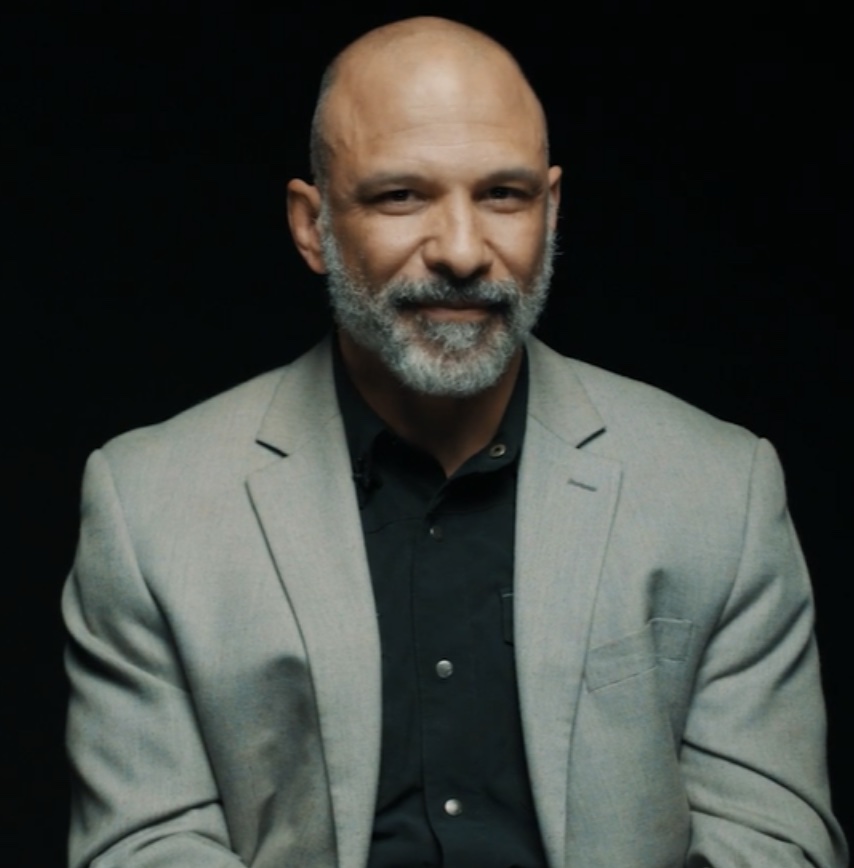
Next time on the Jesus Calling Podcast, we’ll hear from Adrien Lewis, the CEO and founder of CarePortal, which leverages the power of the Christian community to help keep at-risk families together.
Adrien Lewis: We all have the opportunity to see and serve our neighbors, to love people like we love ourselves. And the question really is, “What’s in my hands? What’s in my heart? What’s in my face? Where is the opportunity?” The worst thing we can do is get frozen because we can’t do everything. The best thing we can do is start with what we have and serve the person that’s closest to us.
